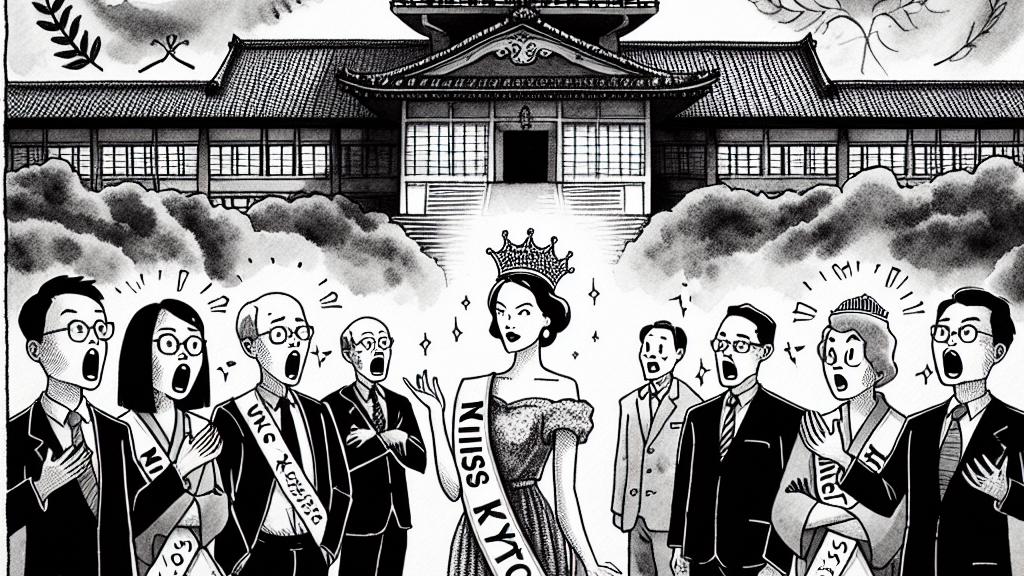Kyoto University Miss Contest Controversy
Overview
- The unexpected continuation of the Miss Kyoto contest has ignited public outrage.
- A heated debate intensifies around the problematic beauty standards it upholds.
- The contest's legitimacy and its disconnection from student life raise serious concerns.

The Contest's Unforeseen Resurrection
Kyoto University, a bastion of academic excellence in Japan, is currently embroiled in a surprisingly contentious issue concerning its Miss Contest. Initially, it was slated for cancellation due to rising public and student protests against the beauty standards it represents. Yet, in a twist that has bewildered many, the contest not only went on but concluded in early 2025, reaffirming the title of 'Miss Kyoto 2024.' Just imagine the shock of students and faculty alike—how could such a contested event proceed despite widespread calls for its end? This unexpected outcome questions the university's commitment to addressing student concerns and maintaining transparency in its decision-making processes.
The Complicated Beauty Standards Question
At the heart of this controversy lies a broader, multifaceted discussion about beauty standards and societal pressures that resonate through many college campuses. Critics have been vocal about how the contest reinforces outdated ideals that objectify women and promote unrealistic beauty norms. For instance, the recent winner, Miki Ichijo, serves as a poignant example; while her achievement is celebrated, it paradoxically highlights the persistent societal pressures many women feel to conform to narrow and often unattainable beauty ideals. Furthermore, some commentators have starkly noted the ways in which past beauty standards continue to haunt modern representations, leading us to question whether we are truly evolving or merely recycling ancient narratives distorted by contemporary culture.
Deep Disconnect from the Student Body
Equally concerning is the glaring disconnect between the Miss Contest and the very student body it ostensibly represents. Can you believe that many students only discovered this significant event after it had ended? With only two candidates vying for the title, skepticism swirls about the contest’s authenticity and whether it genuinely reflects the diverse voices of a prestigious institution like Kyoto University. Moreover, the extremely brief voting period merely exacerbates doubts regarding the competition’s integrity. Is this really a celebration of beauty and talent, or is it merely an eccentric relic of campus culture that fails to engage and resonate with the majority of students? Each of these questions underscores the need for a serious reevaluation of how beauty and representation are understood within academic spaces.

Loading...